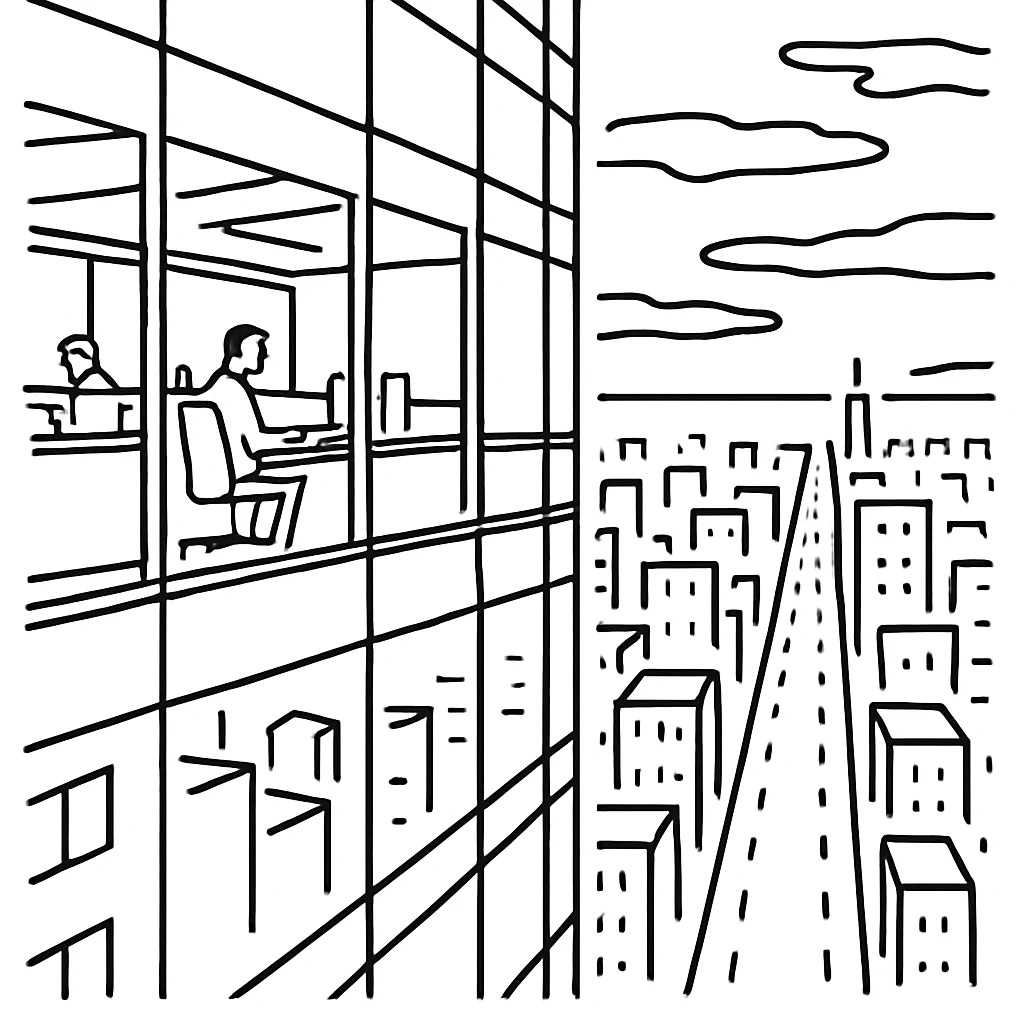2-12: The Distance from Meaning
On Work, Fulfillment, and Living with Purpose
The further one gets from human consequence, the more one must outsource fulfillment to lifestyle, legacy, or belief. That line has been in my head for a few days now. I think it speaks to a seldom-spoken truth about modern work. Most of us, if we're honest, are doing things that don't directly help anyone or reduce suffering. We are far from the frontlines of meaning.
I manage a credit fund for a large private equity firm. Some of that capital eventually benefits pensioners or policyholders in distant places, none of whom I have or will ever meet. The end benefit is several degrees removed. The value I'm delivering is abstract and takes a while to even arrive at. It has to be assembled, and it takes time to trace the route it travels to arrive at meaning.
A better question than "does your job fulfill you" is, "how does your life reduce suffering?" For some, especially those in the medical or educational fields, the feedback loop of meaning is short and immediate. The impact these professionals have on the world through the job is immediately visible. For the rest of us, it's more complicated. Work is a means that affords us the ability.
Scottie Scheffler, currently the best golfer in the world, expressed this feeling well the other week: "I love being able to play this game for a living. It's one of the greatest joys of my life. But does it fill the deepest wants and desires of my heart? Absolutely not." He went on to say that winning doesn't fulfill him and that the joy is fleeting. You win, you celebrate, then it's time to eat dinner.
His job, though seriously lucrative and impressive, is just a support structure for the life that matters more. His faith, his family, his peace form the real foundation. I was taken aback after hearing his quote, as that kind of clarity is rare in a culture so intent on convincing you the job is the whole point of life.
Now, some might argue that athletes reduce suffering in a way. That they alleviate boredom. That their performance gives people a break from life. Sure, in an abstract way, boredom is a form of "suffering." I'll argue that alleviating boredom is not the complete opposite as fulfilling someone. This entertainment dulls sense of purpose through a guise of false meaning. It is a sugar which quiets the appetite for a few hours, but the hunger returns.
Distraction may ease the pressure momentarily, but it doesn’t resolve what’s underneath. Entertainment, sports, and media all serve a function, but they aren’t enough to sustain a life. The goal is not to silence the existential dread, but to stay with it long enough to find a way through it towards living a life that means something.
Ultimately, work is a tool, not the end product. It's how we gain leverage, not where we are meant to stop. Mistaking it for the destination is when things go sideways. That’s how you burn out, or end up wealthy but hollowed out, unsure what it was all for. If work is understood as something that enables a fuller life, then it starts to resemble something worthwhile and something that serves rather than consumes. Your job doesn’t have to save the world, but it should serve a life that’s aiming in that direction.


